
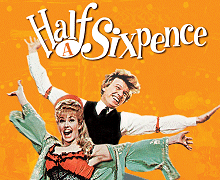

|
 |
|
| In
this film made in 1967 and set in Victorian England, the lead role of Arthur
Kipps (Artie) is taken by the effervescent Tommy Steele with Julia Foster
playing his long time sweetheart Ann. Artie finds a sixpence whilst walking
with Ann which he keeps before they're parted as he goes off to become a
draper's apprentice. A number of years later he meets Ann again and cuts the sixpence in two, giving her half to show their love for each other. Artie's life then changes when he comes into a large inheritance, making him a rich man and 'turning his head', breaking up with Ann and becoming engaged to a wealthy young lady, Helen. Ann goes into service as a parlour maid and is seen by Artie being treated badly by the upper class, this causes him to end his relationship with Helen and marry Ann. She isn't happy with his extravagant schemes but this is resolved when Artie finds out that Helen's brother has absconded with all Artie's money, leaving him broke. They're preparing to live in a modest cottage when news comes that a show he'd invested in has been successful and he will earn some of the profits. Not noted overall for it's musical score, there are a couple of well known songs, namely 'Half a Sixpence' and 'Flash Bang Wallop' (the wedding scene). The film was released on 21st December 1967 in the UK by Paramount British Pictures, produced by Charles H Schneer and directed by George Sidney (his final production) with music and lyrics provided by David Heneker. It was taken from the screenplay adapted by Beverley Cross from his 1963 stage musical based on the original 'Kipps: The Story of a Simple Soul', written by H.G. Wells in 1905. With its $6 million budget, the film was well received in the UK, being the 13th most popular film in 1969 but had very little success in the US. Tommy Steele had previously made 2 bad films there so wasn't very known to the American audience. Critics on both sides of the Atlantic were very mixed in their revues with a lot of comments being quite negative. Julia Foster's vocal double was Marti Webb, who played Ann in the original 1963 London production (and who appears on the London Cast album). |
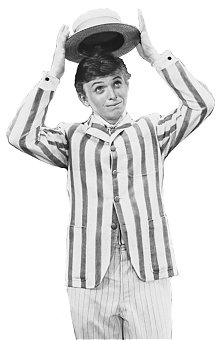 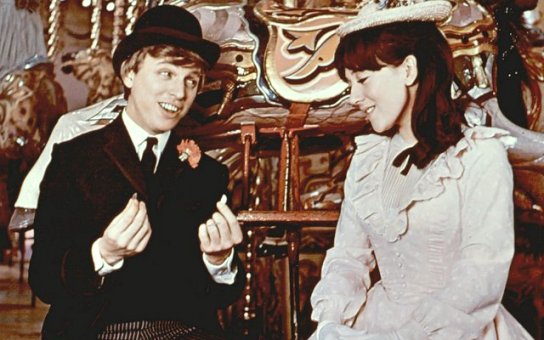 |
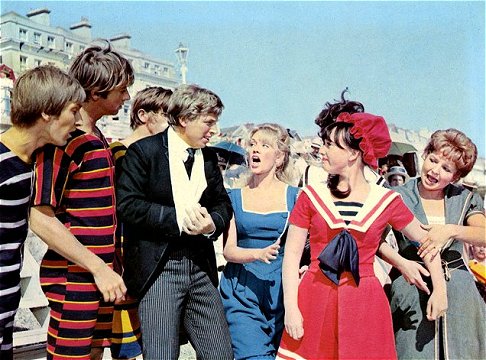
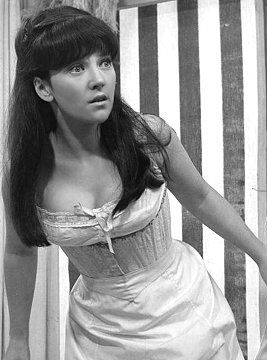
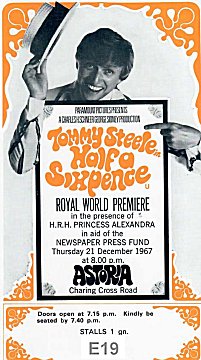
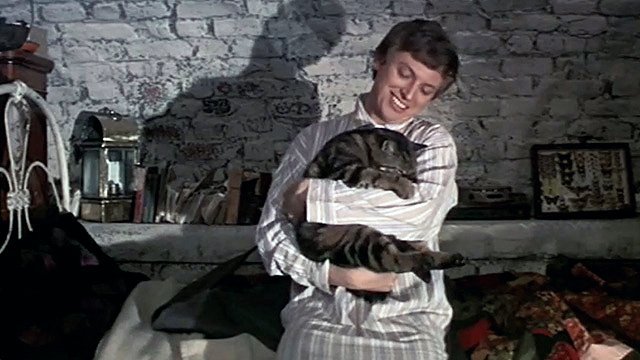
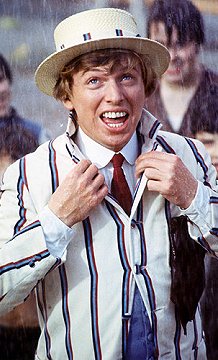
|
All
original material is copyright
Other copyrights may also apply from images or material owners. |